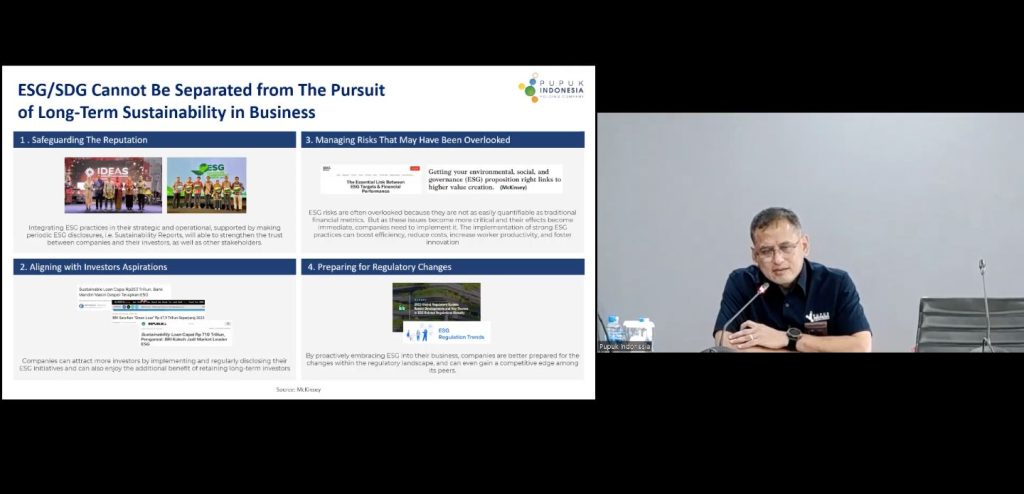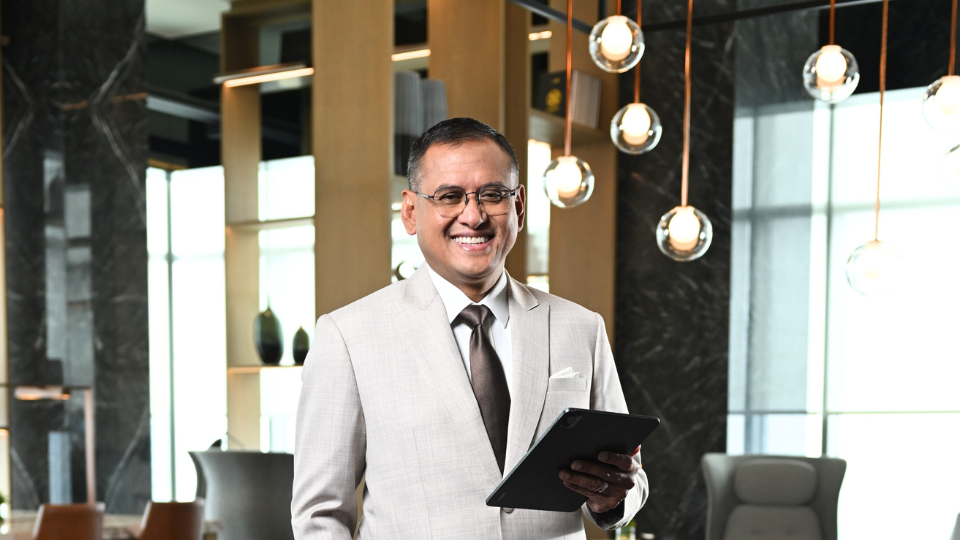As the leader in the industry, PT Pupuk Indonesia (Persero) produces a staggering 14 million tons of fertilizer annually, making it the largest fertilizer producer in the Asia Pacific, Middle East, and North Africa regions. As one of the largest State-Owned Enterprises (BUMN) in Indonesia, Pupuk Indonesia plays a pivotal role as an agent of development.
For Pupuk Indonesia, applying the concept of Environmental Social Governance (ESG) and Sustainable Development Goals (SDGs) is not just an additional aspect but “a way of life,” as Rahmad Pribadi, CEO of Pupuk Indonesia Holding Company, eloquently stated during a guest lecture on MBA General Management in Jakarta on Tuesday (18/4).
According to Rahmad, the implementation of ESG in a company cannot be ignored. ESG activities often aim to support a company’s reputation.
At Pupuk Indonesia, we understand that damage to reputation due to non-compliance of company activities with ESG standards can result in the loss of operating permits. That’s why, we take a proactive approach, integrating ESG into our operations to make risk management easier and open up more investment opportunities.
According to Rahmad, Pupuk Indonesia has implemented various ESG and SDG (sustainable development goals) programs. For example, ammonia production, usually from natural gas, is now shifting to non-fossil sources. By utilizing “green hydrogen” and “pink hydrogen” (hydrogen from water electrolysis), Pupuk Indonesia aims to achieve clean ammonia production.
Even though green innovations are available, achieving zero emissions from production processes remains a significant challenge. Realizing this, Pupuk Indonesia has developed a carbon offset initiative by building community forests to offset greenhouse gas emissions.
“We don’t just plant trees; we also empower communities,” said Rahmad, highlighting the holistic approach in Pupuk Indonesia’s carbon offset program.
Learning about ESG and SDG practices is the key to a company’s successful implementation of its programs.
“I can also learn from fellow ITB MBA students. “We can exchange ideas to create a better Indonesia,” concluded Rahmad.





